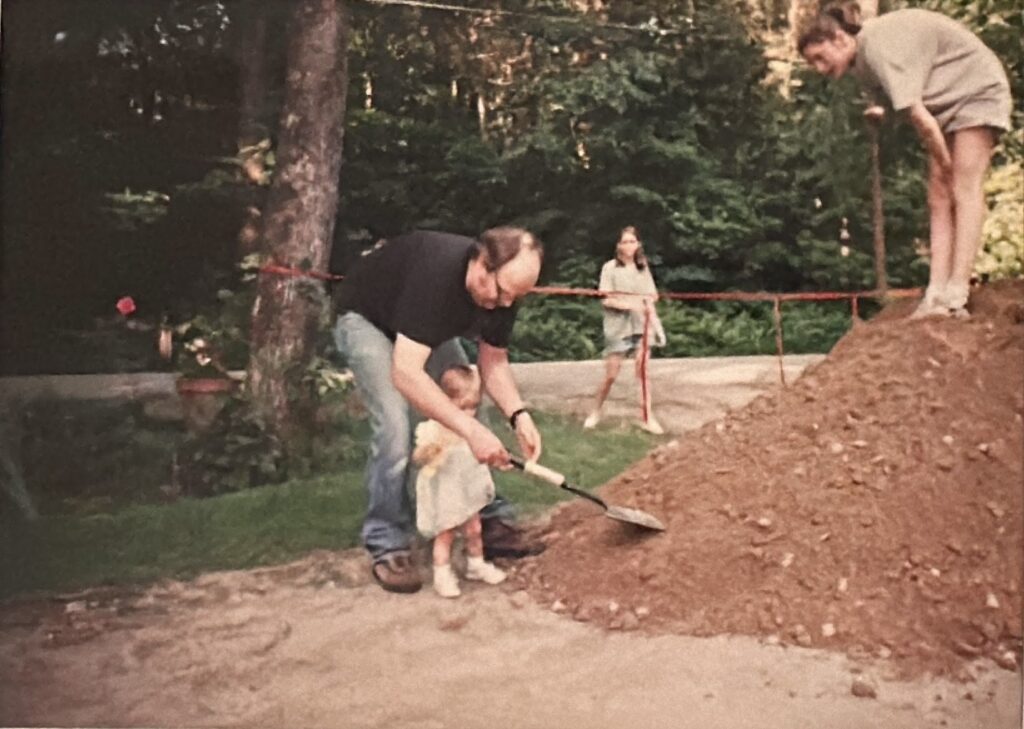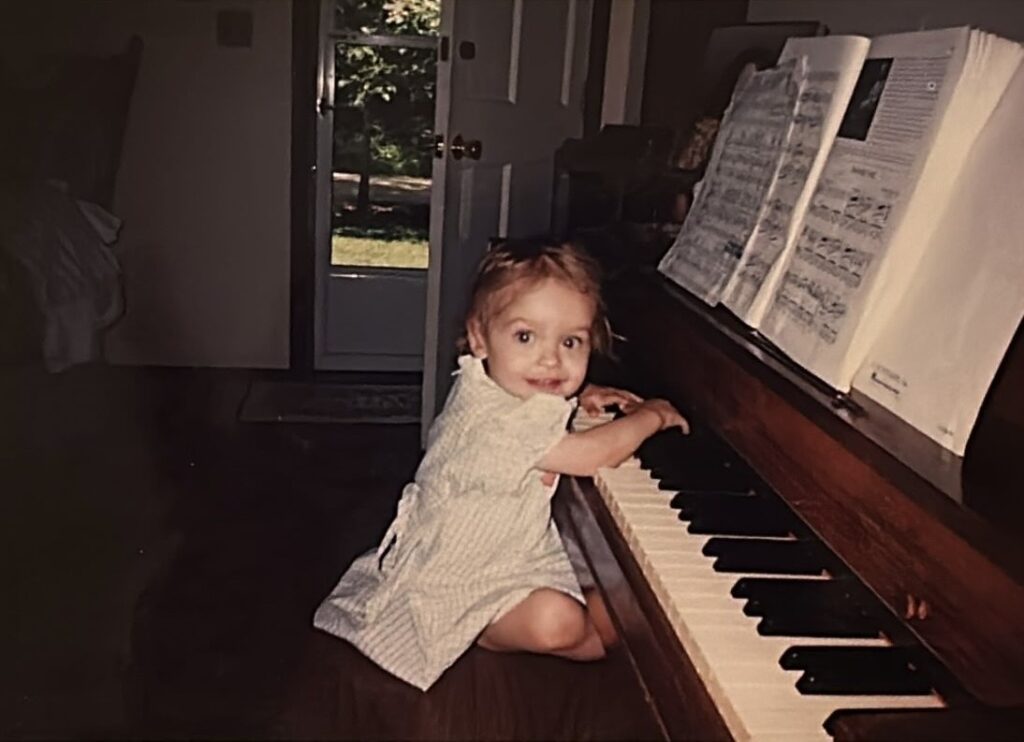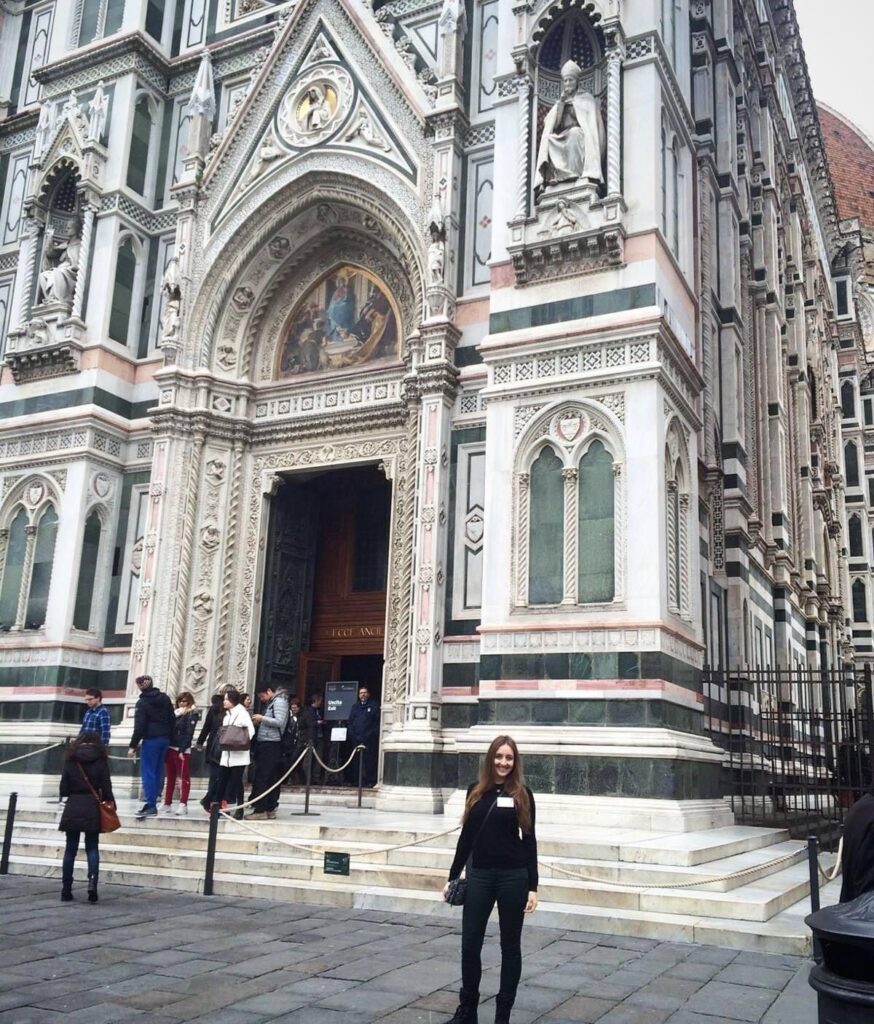Ashley Kippley is a current Sustainability and Built Heritage Intern at ICCROM while completing her master’s in Cultural Heritage at the American University of Rome. Born and raised on the New Hampshire shoreside, she shares how her upbringing immersed in nature, music and volunteer work influenced her current mission toward cultural heritage. Notably, she eagerly volunteered from a young age to support with the aftermath of Hurricane Katrina and eventually served in the PeaceCorp. With a mission to safeguard history, Ashley is motivated to continue her education and career in the combination of her passions in emergency response and cultural heritage.
I was born and raised in New Hampshire. I spent my life here until I moved out to go to college, but I grew up in the seacoast. I was always about half an hour from the ocean, so I really connected with that. Every time I come back home, it’s usually my first stop to go back to the ocean, to the beach, and to see the lighthouse to reconnect with home.

I’ve always been interested in history, art, and culture, and I think a lot of that has to do with what my parents were interested in first. My dad has always been interested in geology so I grew up going to different mines with him, playing in the dirt, and learning about history. With my mom, she always took me to musical concerts. I got into singing at a really young age, and it’s always been a passion of mine, as well as going to historic homes. So now I am seeing a lot of that influence in who I’ve become now in my adult life and still maintain a lot of that influence.

My first memory of singing was always the end of watching The Little Mermaid and I would sing along to ‘Part of Your World’ and I would rewind the VHS tape to do it again. My parents put me in all sorts of activities. I remember being in dance at one point, and then I turned around and saw a microphone which kind of ended dancing for me. I ended up going into choir from when I was around age six, all the way through high school. I would do choir, select choir, and I do church choir. In college, I joined the choir as well and when I got done with my study abroad in Florence in 2016, our director at the university was invited to conduct at Carnegie Hall. I was able to go and sing at Carnegie Hall which was a really cool experience. I’ve sung at my sister’s wedding, my parents’ vow renewal, and I’m actually going to sing at my grandmother’s service as well. I also taught myself piano in fourth grade and then my parents put me in lessons to properly learn it. So yeah, I’ve always been tied to music and I didn’t want to study it because it was always the safe place for me. I felt like if I studied it in college or if it became a chore, then I would lose the solace that it brought me.

I went during my undergrad for Renaissance architecture, drawing, and Italian. That was when I learned about the 1966 flood because it was the 50th anniversary. To go back to the culture question, I was always service-oriented from a very young age. When Hurricane Katrina happened in 2005, our church went down to support. Two years later, I went to a dinner where they showed the work they were doing and I thought, “I want to do this.” But I was only 13 and you had to be 14 to go. Luckily I turned 14, 21 days before we left and it worked out perfectly. I went with my dad and we volunteered all the way up to college. Beyond college, I served in PeaceCorps and I really took what I knew about disaster response and had a passion for that. I also have a passion for the arts and culture so I combined that with the interest of the Florence flood in 1966. I was fascinated by the connection of the catastrophic flooding, as well as the impact on the arts and culture of the city. This became my thesis for my senior year of undergraduate. I knew it was something that I wanted to continue studying beyond that so it’s been eight years coming of actually now getting to do this research. I’m really excited for my master’s thesis now.
Yeah, my dad is very much a girl dad. He has four of us daughters and he’s always been very, very supportive of us. He was actually in New Orleans just before Hurricane Katrina and he brought me back a Mardi Gras mask which I still have. It was kind of this catalyst for me to volunteer and he went with me and continued to support me when I went solo in the years that followed. My parents are always the kind to reach out and help people who need it.
The goal is to finish my master’s in cultural heritage and then do a second one in emergency preparedness or disaster response. I want to take what I’ve learned and be able to continue learning about more of the disaster and risk management side of things. I also really want to help support historic cities, communities, museums, or organizations on what to do in the case of climate-related disasters. Especially because that is something increasing and occurring in our lifetime. I think it is really important to safeguard our past and learn from it so that you can prevent stuff from happening in the future as well. If you don’t know your past, you’re doomed to repeat it. I don’t want us to lose the aspects of our culture, the things that make us, us.
One of the things I learned early on was that a lot of places don’t even have a list of people that you would call in the case of an emergency. That is just mind-blowing to me because there is a great deal of importance in our history and culture. That is where a lot of people find identity and really determine the paths that they take as well as their belief systems. So I think it’s really important to safeguard and that’s one of the reasons why I’m intrigued to do that. It has a great influence on who we are and the decisions that are made worldwide.
Tell your story with the Roots to Fruits Storytelling Kit
Honestus on Instagram
